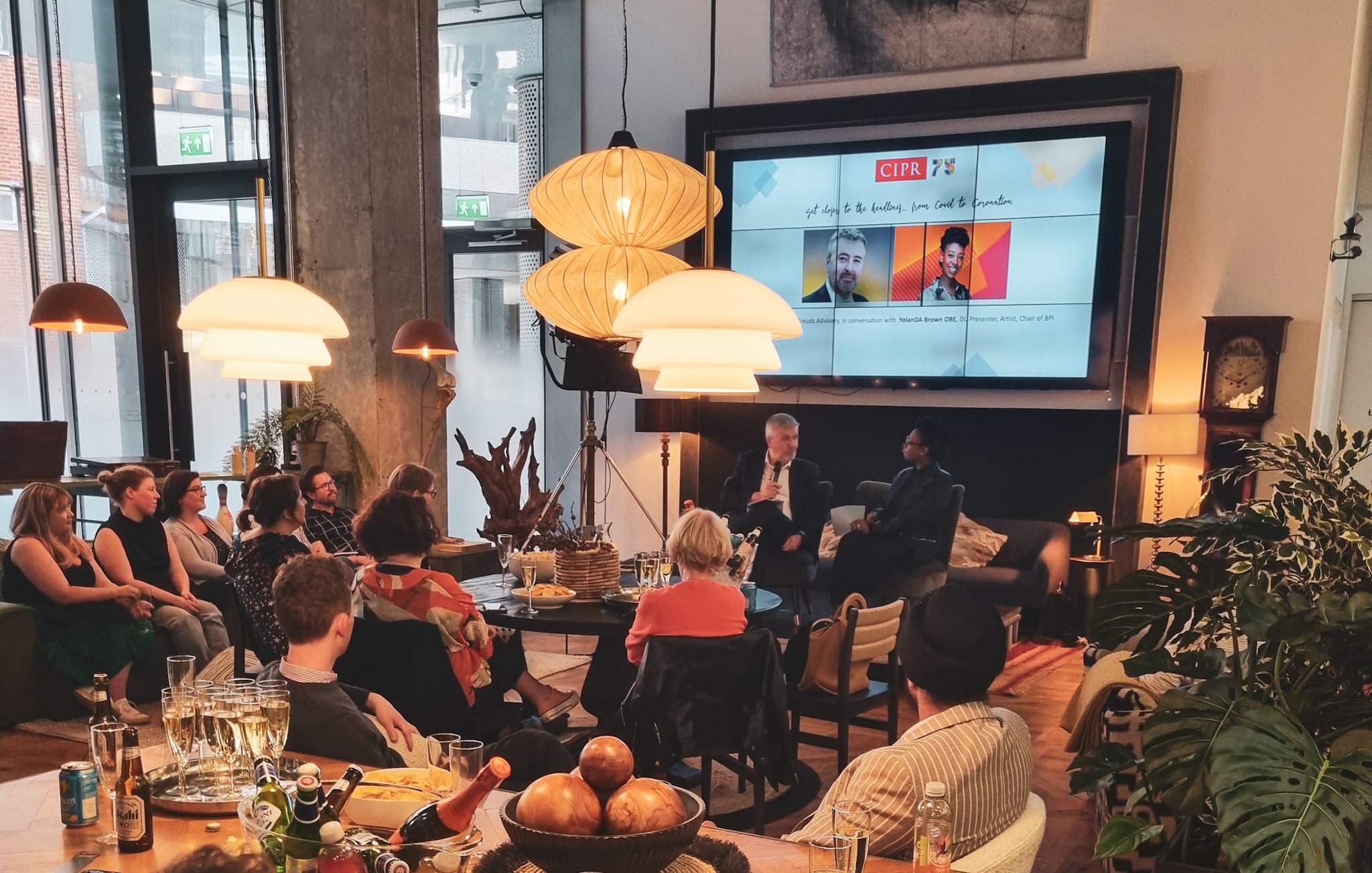As PR practitioners, a lot of us have dreamt of working with prestigious institutions and representing high-profile organisations in the public eye. We imagine glamourous collaborations with prominent figures and celebrities, defining campaigns that change perceptions and society profoundly, managing an ever-changing media narrative and advising on influential societal matters. But is it as thrilling as it sounds? And more importantly, what does it take to reach this level?
Earlier this month, in a powerful session at Freud Communications, CIPR London brought together Simon Enright, Chair of Freuds Advisory and former Communications Director of NHS England and Communications Secretary to HM King Charles, and YolanDa Brown OBE, DL, an artist, broadcaster, music venue owner, and Chair of the BPI to explore this topic.
Behind the headlines and fanfare, they discussed the intricacies of communications in the public eye, shedding light on their experiences with two of the most famous British institutions during a time of unprecedented change. From the lessons learned during the pandemic to insights into the role of a communications secretary to a royal, they provided valuable perspectives on planning, executing and measuring effective communications strategies.
The CARMA insights team were delighted to attend this fascinating event and took away three key learnings.
The Importance of Profile Building
Emphasising the significance of « building profile » when starting a career or any PR campaign or initiative, the discussion raised an intriguing question: When working for an organisation that already enjoys a significant profile, where does one begin?
The answer to this lies in understanding what can and cannot be achieved and aligning the communication efforts with the client’s interests. An example was provided, showcasing the years of ground-breaking work done by HM King Charles that focused on tasks related to the environment. It has involved influential figures to promote the royals’ commitment to environmental causes.
It all begins with a great communications plan, clear objectives and the following questions: What are you known for? What defines you? What do you want to be known for? Then, identifying the ‘white gaps’ will help you to identify the right opportunities.
Adapting To a Changing Communications Landscape
The impact of significant events such as Covid-19, Brexit or the coronation of HM King Charles on public perceptions and relationships was highlighted. Another crucial change discussed was how the modern world allows individuals to pursue multiple passions, leading to messier communications landscapes.
To tackle these challenges, adaptability is key, as well as being able to maintain a clear focus and to define the core of one’s work. The importance of proper monitoring, analysis and insights of traditional and social media was emphasised, as it enables effective reputation awareness and management by staying abreast of conversations and potential issues.
The Power of Relatable Campaigns
What is the secret to a great campaign going viral? A successful example focusing on the NHS’ COVID vaccination campaign was shared. One key element of its profound impact was the involvement of ordinary people rather than relying solely on celebrities, politicians, or influencers. The impact of a viral image, depicting an elderly woman receiving the vaccine, was highlighted, demonstrating the importance of relatable and authentic storytelling.
When it comes to navigating communications in high-profile organisations, it can be acknowledged that this task is not without its challenges. It requires individuals with a strong resolve, the ability to create authentic campaigns and a deep understanding of the profound impact that the increased media scrutiny of today has.
But with the right monitoring and analysis tools, starting with a clear strategy, a proper plan, understanding audiences, adapting to an ever-changing world and focusing on audience engagement remain crucial in successfully conveying the right message, to the right people, to change perceptions and influence behaviours.
And this, dear communicators, should apply whether you work for the smallest organisation, a critical national health service or even a king!
Find out about the CIPR Greater London group’s next events on the CIPR’s website and on their EventBrite page.
Jennifer is an Insights Consultant at CARMA. With a passion for communication evaluation, media analysis, strategic planning and crisis management, Jennifer has helped many international corporations and governmental organisations communicate more effectively with their audiences. Jennifer joined CARMA in 2020 having worked for another media analysis firm. She is a committee member of the CIPR Greater London group, a member of the PRCA and in 2019, the CIPR East Anglia awarded her Outstanding Young Communicator of the Year.

